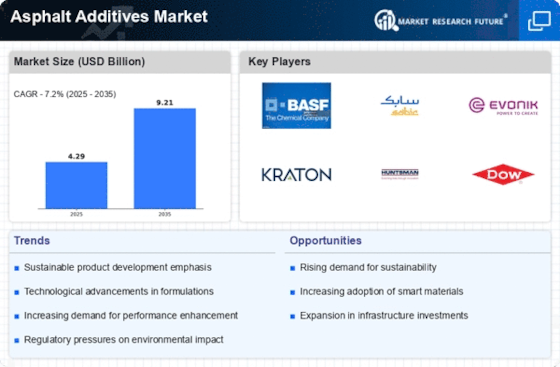Market Share
Asphalt Additives Market Share Analysis
The Asphalt Additives Market, a vital construction industry segment, uses numerous market share positioning techniques. These techniques help organizations in this sector survive and prosper in a changing business climate. Companies often differentiate their asphalt additives from competitors. This may require creating additives with particular properties like durability, sustainability, or performance under specified situations. Companies highlight these differentiators to attract clients and create a market niche.
Cost leadership is another Asphalt Additives Market share positioning tactic. Some corporations use economies of scale and operational efficiency to make additives cheaper than competitors. This allows them to compete on pricing while remaining profitable. Cost leadership works well in price-sensitive sectors where customers value quality and affordability. Companies can build a huge customer base and market leadership by continually providing cost-effective solutions.
To grow their market share, Asphalt Additives Market enterprises generally expand regionally or globally. This involves entering new markets or increasing operations. Geographic diversification lets companies reach new customers and benefit from other economies. It reduces market-specific and regulatory risks. Understanding local market dynamics, adapting to cultural differences, and tailoring products to regional demands are essential for global expansion.
Companies in the Asphalt Additives Market also use collaboration and partnerships to gain market share. Companies can gain complementary resources, technologies, and skills by forging strategic partnerships with other industry players, suppliers, or research institutes. Collaborations can create new goods, share R&D costs, and increase distribution networks. Through efficient collaborations, organizations can obtain a market advantage and outperform competitors.
Market segmentation is also important for Asphalt Additives Market share positioning. Companies examine the market to find consumer categories with distinctive demands and preferences. Companies can increase relevance and appeal by targeting these segments with products and marketing. This method improves resource allocation and consumer comprehension, increasing market share in each category.


















Leave a Comment